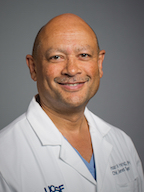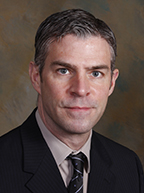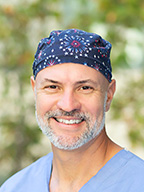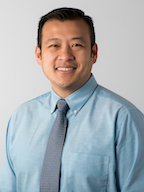Enterocutaneous Fistula
An enterocutaneous fistula (ECF) is an abnormal connection that develops between the intestinal tract or stomach and the skin. As a result, contents of the stomach or intestines leak through to the skin.
Most ECFs occur after bowel surgery. Other causes include infection, perforated peptic ulcer, inflammatory bowel disease, Crohn's disease or ulcerative colitis. An ECF may also develop from an abdominal injury or trauma, such as a stabbing or gunshot.
Patients with ECFs often experience complex problems that require long-term care. This care is provided by a team including surgeons, nurses, enterostomal therapists, social workers and nutritionists who will personalize a treatment plan.
At UCSF, enterocutaneous fistulas are treated by the UCSF Complex Abdominal Surgery Program, a high-volume service whose surgeons perform intricate and challenging abdominal procedures using state-of-the-art surgical repair. The multidisciplinary team also includes specialists in nursing, intensive care medicine, wound care, plastic surgery, pharmacology, infectious diseasese, nutritional and physical rehabilitation. Our depth and breadth of experience helps ensure that each patient receives the best possible care for ECFs.
Signs and Symptoms
Enterocutaneous fistulas (ECFs) can cause contents of the intestines or stomach to leak through a wound or opening in the skin. It also can cause:
- Dehydration
- Diarrhea
- Malnutrition
Diagnostic Tests
- Abdominal CT scan
- Barium enema, if the fistula involves the colon
- Barium swallow, also called an esophagram. This test is a series of X-rays of the esophagus. You drink a liquid containing barium, which coats the inside of your esophagus. The barium causes changes in the shape of the esophagus to show up on the X-rays.
- Fistulogram, which involves injecting contrast dye into the opening of the skin of an ECF and taking X-rays
Treatment
If the enterocutaneous fistula (ECF) doesn't heal on its own after a few weeks or months, a complex surgery is required to close the fistula and reconnect the gastrointestinal tract. Patients with ECFs often need specialized wound care, nutritional rehabilitation and physical rehabilitation. In addition to surgeons, specialists in nursing, nutrition, intensive-care medicine, wound care, plastic surgery, pharmacology and infectious disease may be part of the treatment team.
At UCSF Medical Center, enterocutaneous fistulas are treated by specialists in the Complex Abdominal Surgery Program.






